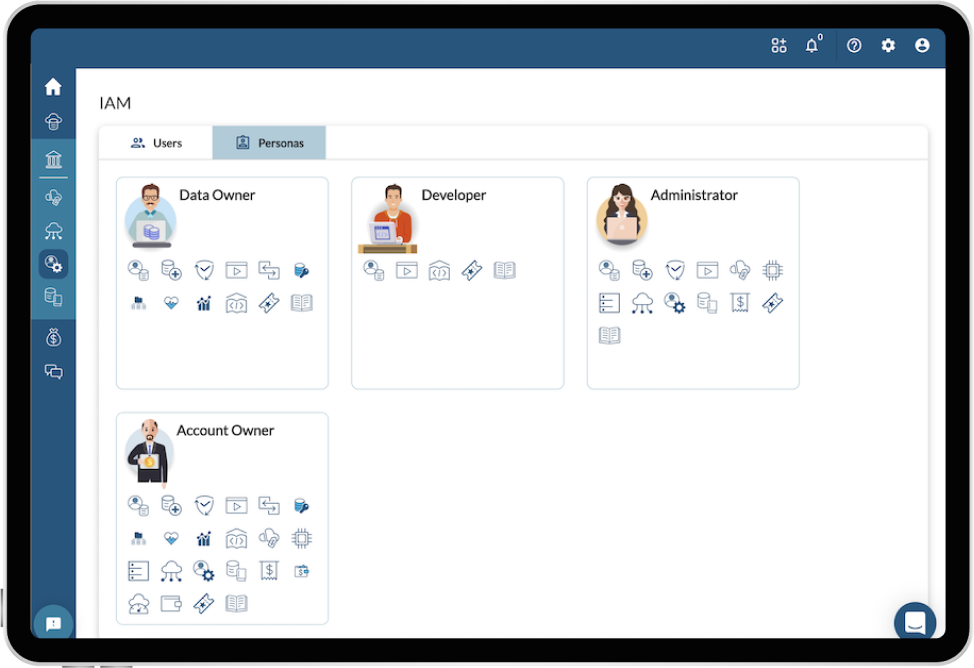Imagine launching a new online service, eager to reach a global audience. You need a platform that can handle the demands of millions of users, scale seamlessly as your business grows, and offer the security and reliability your customers need. This is where Oracle Cloud comes in, providing a robust and versatile infrastructure. But navigating the world of cloud hosting can feel overwhelming, especially when it comes to understanding intricate policies governing data storage, location, and delivery.

Image: cloudangles.com
This comprehensive guide delves into the core of Oracle Cloud hosting and delivery policies, unraveling the complexities and empowering you to make informed decisions. We’ll explore the different service models, data residency options, and the implications of these policies for your business. Whether you’re a seasoned IT professional or just starting your cloud journey, understanding these policies is crucial for building a secure, compliant, and successful online presence.
Key Concepts: Demystifying the Basics
1. Oracle Cloud Infrastructure (OCI): The Foundation
Oracle Cloud Infrastructure (OCI) is the backbone of Oracle’s cloud offering, providing a wide array of services that cater to diverse business needs. These services encompass compute, storage, networking, databases, security, and more. Understanding OCI is essential for grasping the underlying infrastructure that shapes the delivery and management of your applications and data.
2. Service Models: Choosing the Right Fit
Oracle, like other major cloud providers, offers different service models to suit various requirements:
- Infrastructure as a Service (IaaS): Provides access to raw computing resources like virtual machines (VMs), storage, and networking. You have greater control over the underlying infrastructure but are responsible for managing operating systems and applications.
- Platform as a Service (PaaS): Offers a platform for building and deploying applications, providing tools and services for development, managing databases, and deploying web applications. You focus on application development, while the platform handles infrastructure management.
- Software as a Service (SaaS): Delivers fully functional applications directly through the cloud. Users access these applications through a web browser or mobile app, eliminating the need for installation and management. Oracle offers a range of SaaS applications like Oracle Fusion Cloud ERP and Oracle NetSuite.
Choosing the right service model depends on your specific requirements, the level of control you desire, and your technical expertise.

Image: smconsultant.com
3. Data Residency and Sovereignty: Understanding the Landscape
Data residency policies define where your data is physically stored, while data sovereignty refers to the legal jurisdiction that governs data protection and privacy. Oracle aligns its cloud hosting and delivery with these crucial aspects, acknowledging the increasing importance of data localization and compliance.
Oracle Cloud Hosting and Delivery Policies: A Deeper Dive
1. Data Centers and Global Presence: Ensuring Reach and Reliability
Oracle has a global network of data centers strategically located across multiple regions. This vast footprint allows you to choose the location that best suits your needs, whether minimizing latency for users in a specific geographic area or adhering to data residency requirements.
Each data center is designed with high levels of redundancy and security, ensuring the availability and protection of your data. Oracle provides detailed information on the location and specifications of its data centers, facilitating informed decisions about data placement.
2. The Importance of Compliance and Certifications
Compliance with industry-standard regulations is critical for building trust and ensuring the security of your data. Oracle Cloud offers a comprehensive suite of certifications, including:
- ISO 27001: Demonstrates commitment to information security management system (ISMS).
- SOC 2: Assesses controls related to security, availability, processing integrity, confidentiality, and privacy.
- HIPAA: Meets requirements for handling protected health information (PHI) in healthcare.
- PCI DSS: Complies with security standards for handling payment card data.
These certifications demonstrate Oracle’s commitment to maintaining high security standards and meeting the specific requirements of industries with stringent regulations.
3. Data Transfer and Access Controls: Maintaining Security and Privacy
Oracle implements various security measures to protect data during transfer and access. Encryption in transit utilizes protocols like TLS/SSL to secure data as it moves between clients and Oracle Cloud services. This ensures that even if data is intercepted, it remains unreadable without the appropriate decryption key.
Access controls are another crucial aspect of data security. You can configure fine-grained permissions, defining who can access which data and what actions they are allowed to perform. This granular approach provides a robust layer of protection, preventing unauthorized access and data breaches.
Oracle Cloud Hosting and Delivery Policies: Implications for Your Business
Understanding Oracle’s hosting and delivery policies goes beyond technical jargon. It directly impacts your business operations, shaping decisions related to data management, compliance, and overall cloud strategy.
1. Data Residency: Compliance and Localization
If you operate in a region with specific data residency requirements, Oracle Cloud’s global infrastructure allows you to choose a data center within that jurisdiction. This ensures that your data remains within the designated geographical boundaries, fulfilling legal obligations and maintaining user trust.
2. Security and Compliance: Building Trust with Customers
Compliance certifications demonstrate your commitment to protecting sensitive data, building confidence with customers and partners. If your industry requires specific compliance standards (like HIPAA for healthcare or PCI DSS for payment processing), Oracle Cloud’s certifications provide a foundation for meeting these requirements.
3. Performance Optimization: Minimizing Latency and Enhancing User Experience
Strategically choosing data center locations can significantly impact application performance. By selecting a location close to your users, you minimize latency, resulting in faster loading times and a more responsive experience. This is crucial for applications requiring real-time interaction or handling large amounts of data.
Oracle Cloud Hosting And Delivery Policies
Conclusion: Navigating Oracle Cloud with Confidence
Oracle Cloud offers a comprehensive and secure platform for hosting and delivering applications and services. Understanding its hosting and delivery policies allows you to make informed decisions about data residency, compliance, and performance optimization. By leveraging the flexibility and security features of Oracle Cloud, you can build a robust and reliable online presence that meets the demands of your business and customers.
As the cloud landscape continues to evolve, keeping abreast of the latest advancements in Oracle Cloud hosting and delivery policies is essential. This guide provides a stepping stone to a deeper understanding of these policies, empowering you to navigate the complexities of the cloud and harness its power for success.






